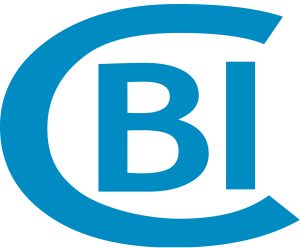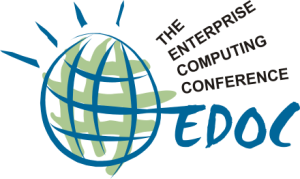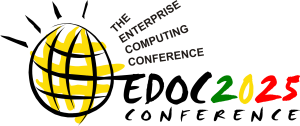16th International Workshop on Service oriented Enterprise Architecture for Enterprise Engineering (SoEA4EE 2025) (you can spell ‘Sophie’)
Call for Contributions
Enterprise Engineering (EE) is the application of engineering principles to the design of Enterprise Architectures (EA). It enables deriving the Enterprise Architecture from the enterprise goals and strategy, and aligning it with the enterprise resources in the Computing Continuum. Enterprise architecture maps the enterprise goal and strategy to the enterprise’s resources (actors, assets, IT supports) and supports the evolution of this mapping. It also provides documentation on the assignment of enterprise resources to the enterprise goals and strategy, e.g., for establishing new business models such as platforms.
The SoEA4EE workshop focuses on the paradigm of encapsulating digital resources and capacities as services for enterprise architecture. The workshop aims to develop concepts and methods to assist the engineering and management of service-oriented enterprise architectures (SoEA) and the software systems supporting them in the Computing Continuum.
TOPICS FOR DISCUSSION
During the workshop we will discuss the following topics:
- Digital enterprises, Industry 4.0 and Platforms in the Computing Continuum
- New trends in digitization for EA and EE e.g. Industry 4.0, platforms
- Impacts of digitized products on EA
- EA – contributions and challenges for digital transformation, Industry 4.0, and platforms
- Fitting SoEA with cloud, edge, fog computing
- Pervasive service ecosystems
- Context awareness and service orientation in ubiquitous computing
- SoEA and influence of Artificial Intelligence, social information systems, and big data in Enterprise Engineering
- Trends in SoEA to use the capabilities of Artificial Intelligence, social information systems and big data (volume, variety, velocity, veracity)
- Impacts of Artificial Intelligence, social information systems, and big data on the SoEA
- Use of ChatGPT, etc. as component of Enterprise Architecture
- Generative AI as tool in Enterprise Engineering
- Alignment of the enterprise goals and strategy with the SoEA
- Interdependencies between services and business goals
- Concepts and methods to align services with the business strategy
- New potentials and trends created by services to reengineer business processes
- Quality issues and non-functional requirements for SoEA
- Coherence of services with compliance requirements (among others, GDPR, ISO/IEC 27001 and 27002, ISO 15408)
- Design of SoEA
- Specifications of business, software, platform, and infrastructure services
- Matching business services with business processes
- Lifecycle of business, software, platform, and infrastructure services
- Data-driven monitoring of the fulfilment of non-functional requirements (big data, IoT, …)
- Benchmarks and key performance indicators for services
- Approaches the continual improvement of services
- Governance of SoEA
- Impacts of SoEA on the compliance and governance requirements
- Meta-services for business, software, platform, and infrastructure services
- Building service (value) nets -consisting of business, software, platform and infrastructure services
- Meta-services for cloud-environments
- Impacts of VUCA (Volatility, Uncertainty, Complexity, Ambiguity) on the governance of EA
Submissions
Full papers describing mature results are sought. In addition, idea papers may be submitted to facilitate discussion of recent research results and ongoing projects. Industry experience reports that provide new insights gained in case studies or when applying service-oriented EA for enterprise engineering are also welcome. The paper selection will be based on the relevance of a paper to the main topics and its quality and potential to generate relevant discussion. All contributions will be peer-reviewed based on the complete version.
Please note that all submissions (10 to 15 pages), and must follow the Springer CS Style (an Overleaf LaTeX template is available).
Deadline for submissions: 14 July 2025 (Notification of authors until 29 July 2025)
The SoEA4EE workshop has been a full-day workshop in conjunction with EDOC’09 in New Zealand, with EDOC’10 in Brasil, EDOC’11 in Finland, EDOC 2012 in China, EDOC’2013 in Canada, EDOC’2014 in Germany, EDOC’2015 in Australia, EDOC’2016 in Austria, EDOC’2017 in Canada, EDOC’2018 in Stockholm, EDOC’2019 in Paris, and a half day workshop in conjunction with EDOC’2020 The Netherlands (virtual), EDOC’2021 Australia (virtual), EDOC’2022 in Italy and EDOC’2023 in The Netherlands.
The programs of the previous editions will be accessible later from the portal of the SoEA4EE series (under reconstruction after being temporarly lost…)!
Publication
Revised versions of selected papers can be invited for a post-conference publication volume in the LNBIP series by Springer.
In 2012, the authors of the selected papers from the four previous editions of SoEA4EE have been invited to submit an extended version of their paper to a special issue of the International Journal of Information Systems in the Service Sector (IJISSS). Eight extended papers have been submitted. The IJISSS Special Issue, 7(1) January-March 2015, presents four papers selected after a two-round peer review and covering a broad spectrum of themes in Service Oriented Enterprise Architecture Engineering from technical to conceptual and managerial themes. See: https://www.igi-global.com/gateway/issue/118493
The second special issue in International Journal of Information Systems in the Service Sector (IJISSS), with the selected papers of the three SoEA4EE editions (2013, 2014 and 2015) has been published in the volume 10(3) May 2018, and includes four papers selected after a two-round peer review. See: https://www.igi-global.com/gateway/issue/184903
A third special issue in International Journal of Information Systems in the Service Sector (IJISSS), with the selected works of the last SoEA4EE editions is being considered. See: http://www.igi-global.com/journal/international-journal-information-systems-service/1099
Organization
- Chairs
- Selmin Nurcan – University Paris 1 Pantheon Sorbonne, France
- Rainer Schmidt – Munich University of Applied Sciences, Germany


